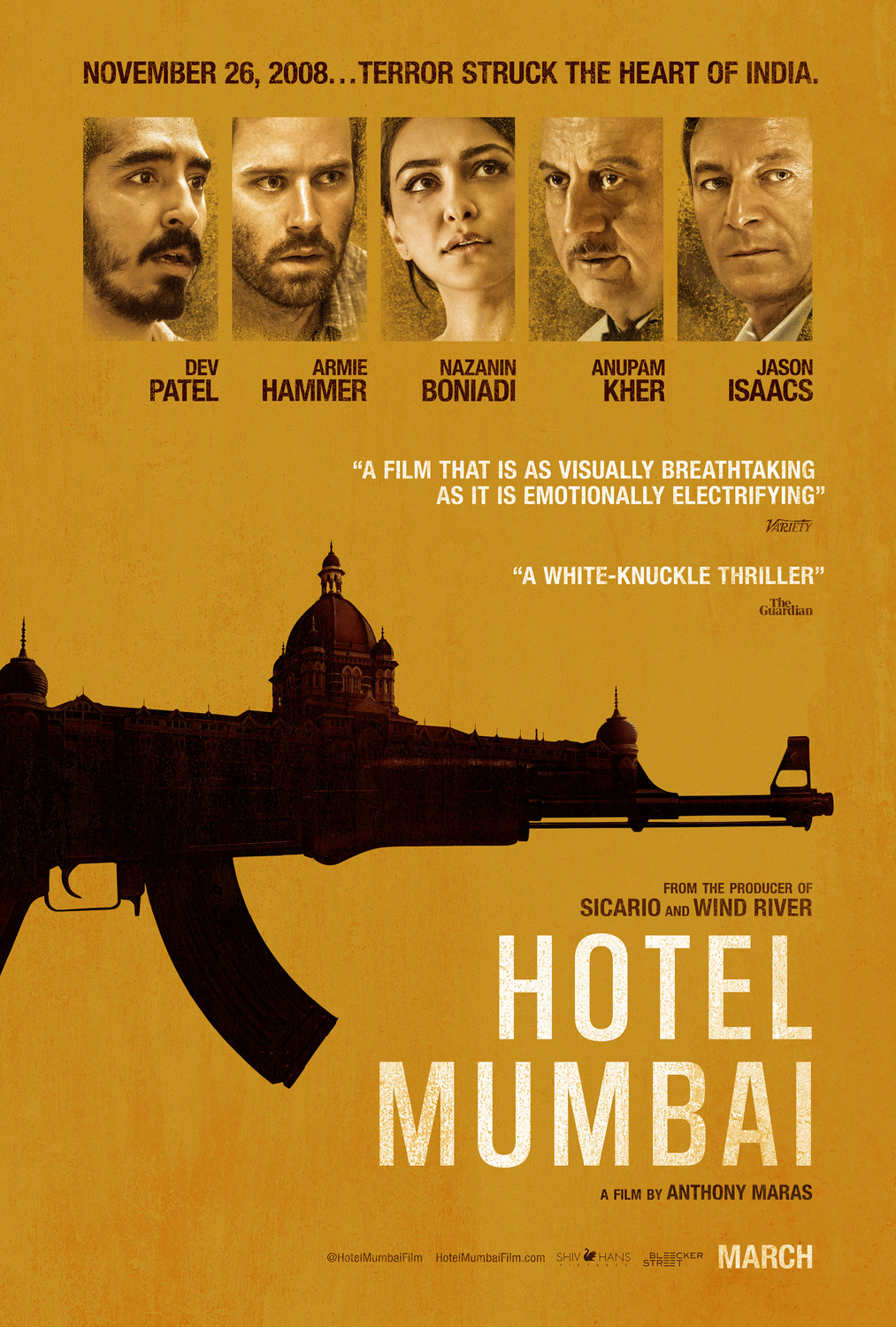The latest in the long line of dramatic recountings of horrific real-life tragedies (22 July, The 15:17 to Paris) Hotel Mumbai takes us smack into the middle of the bloody attacks in India in November 2008. More than 150 people were killed, and 300 were injured in the four-day siege, which was carried out by Pakistani terrorists.
As utterly compelling as the story is (particularly for us in the West, for whom the news of the event may have been largely lost over the Thanksgiving holiday at the time), the question that always pops up at the arrival of this kind of movie continues to prevail—do we really need to see real-life horror portrayed on a thirty-foot-tall movie screen?
One would hardly consider Hotel Mumbai (as expertly crafted as it is) to be “entertainment”, and it’s doubtful too many folks rushed to buy their tickets with eager anticipation of seeing the re-creation of the harrowing events, but perhaps if audiences can gain a better understanding of what happened while also appreciating the utter selflessness of so many heroes, it won’t feel like blatant exploitation.
As evidenced by Anthony Maras’ chilling movie, there were indeed plenty of heroes. And as brutal as Hotel Mumbai is to watch, it stands as an example of how to do movies of this ilk the right way. It’s an important, gripping, and ultimately uplifting movie about real people facing the absolute worst in others and coming out on the other side.
Inspired by the 2009 documentary Surviving Mumbai, Maras’ film begins with the serene moment of an inflatable speedboat coming ashore with a dozen men lugging backpacks and duffel bags packed with grenades, assault rifles, and ammunition. Within an hour, the attacks begin as the men, having split up and dispersed to various corners of the city, open fire. The first attack comes in the central train station and then spreads to a nearby cafe and finally to the 500-room, five-star Taj Mahal Palace Hotel.
Though Maras and co-writer John Collee (The Legend of Tarzan) based the story on actual events, by and large the characters are composites of actual victims and survivors. Wealthy couple David (Armie Hammer) and Zahra (Nazanin Boniadi) are in the dining room when the attacks begin, while their newborn child is up in their room with the nanny (Tilda Cobham-Hervey). Russian businessman Vasili (Jason Isaacs), meanwhile, is a arranging for a prostitute, while behind the scenes, waiter Arjun (Dev Patel) is seeing to the guests, and head chef Hemant Oberoi (Anupam Kher) is prepping dinner.
The attacks begin in a bloody flurry before stretching into a tense, white-knuckle ten-hour ordeal. Maras, in fact, often seems to be channeling United 93 and 22 Julydirector Paul Greengrass—who has seemingly made a living bringing real-life terror attacks to the big screen. Maras captures the horror of the ordeal without it ever having the feel like of exploiting the event or the victims.
By deftly integrating real news footage of the events into the film, Maras also never lets us forget that these events really happened, shattering hundreds of lives and, truly, an entire country. He walks a fine line, to be sure, but he does so with grace and balance. You may be able to question the decision to make the film, but there’s no doubting the passion of the human spirit that is on display here in the face of such terror and tragedy. Maras gives it all to us unflinchingly, making Hotel Mumbai, for sure, a tough watch but in many ways an important one.
Rating
4/5 stars
